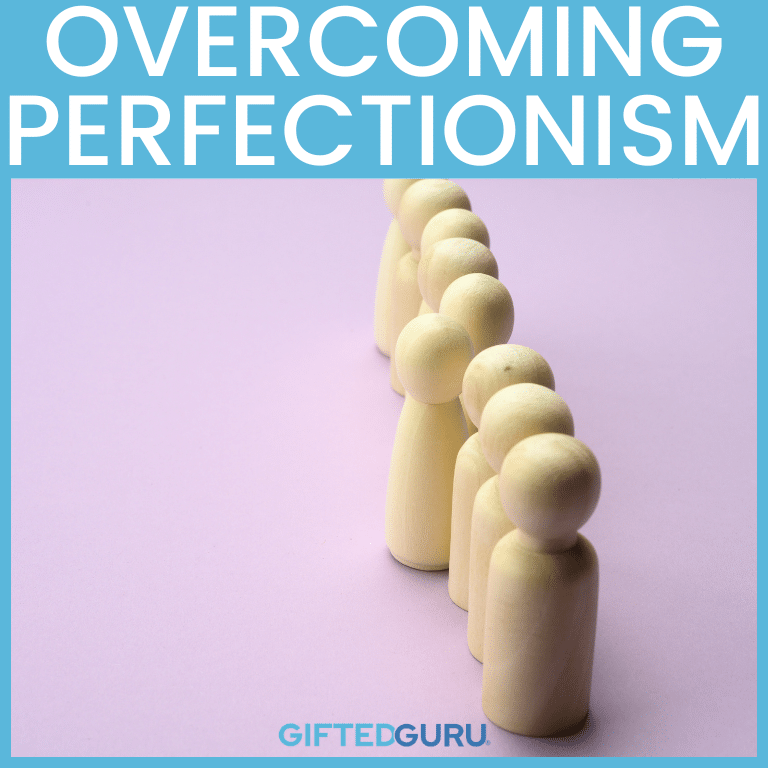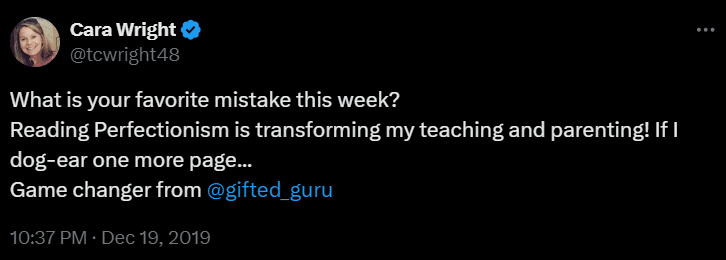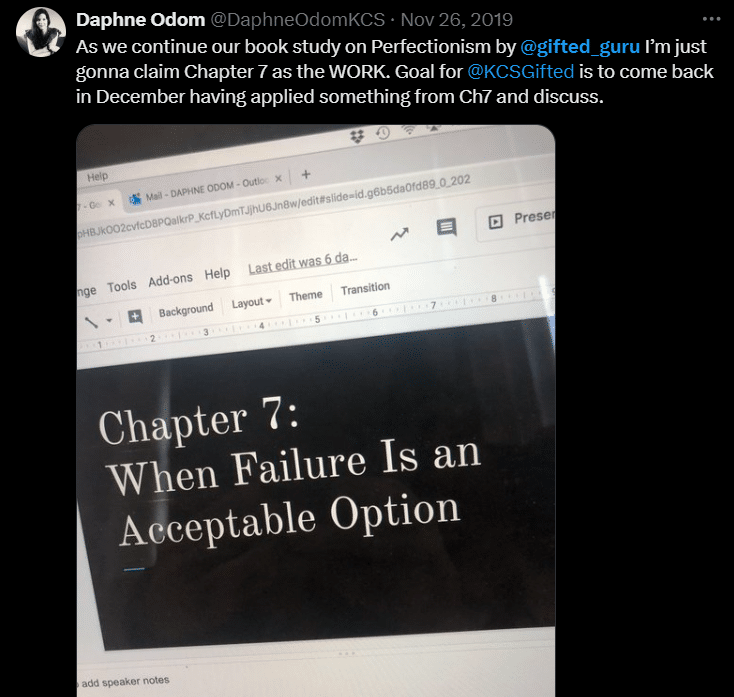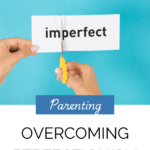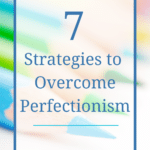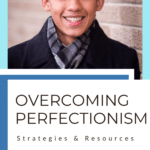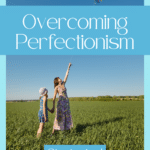Introduction to Overcoming Perfectionism
When I was learning to quilt, the only consistent about my stitching were the mistakes.
A friend reassured me that the famous and fabulous Amish quilters always placed a deliberate mistake in their quilts in recognition that only God is perfect.
After that, whenever I made a mistake (often), I would shrug and say, “Oh, that’s just my Amish mistake” (or my 23rd Amish mistake, whatever), and go on.
I have since discovered that the idea of an Amish mistake in a quilt isn’t really accurate, yet I still share it because it is a great example of how overcoming perfectionism is best done one simple technique at a time.

You Can Overcome Perfectionism
As the author of an award-winning book on perfectionism, I can say this for sure: You can overcome perfectionism to the point that it works for you, not against you.
Here are two important things you need to know:
I define perfectionism as unreasonably high expectations combined with a lack of self-love.
✅Perfectionism isn’t something to rid yourself of completely.
You don’t want to become so anti-perfectionist that you don’t finish your course of prescribed antibiotics or live in filth.
The goal is that you find the appropriate level of perfectionism for you in the different aspects of your life.
✅Perfectionism isn’t a good goal.
When things are perfect, they are rarely interesting. Be honest: Do you want to be friends with someone perfect? Yuck.
In Leonard Cohen’s song “Anthem,” he says,
Ring the bells that still can ring
Forget your perfect offering.
There is a crack in everything,
That’s how the light gets in.
I’m an expert in the care and feeding of gifted children, so I’ll be focused on them in this article, but I promise that it applies to everyone.
All too often gifted youth find it impossible to forget their perfect offering, instead sacrificing themselves, their time, and their talent on the altar of perfection seeking.
Types of Perfectionism in Students
In their book Letting Go of Perfect, Adelson & Wilson identify five types of perfectionist gifted kids:
- The Achiever: I’ll get 100 or die trying
- Aggravated Accuracy Assessors: I’ll do it over and over and over. White out was made for me!
- Risk evaders: I won’t try because I think I might fail
- Controlling Image Managers: It’s not that I can’t – I just don’t want to
- Procrastinating Perfectionists: I won’t turn it in because it’s not really a zero if I chose not to do it
How many of you have seen or felt one of these types in someone you know or yourself?
I’m guessing it’s almost all of us.
But this is not a lament, not an ode to the woes of perfectionism. What I want to focus on is what we can do – strategies to help gifted learners break out of these patterns, or at least learn to function within them in a way that works for them.
Strategies for Overcoming Perfectionism
It’s important to understand the theory behind perfectionism, yet the strategies for overcoming it are what you are here for. Let’s look at a few top strategies for managing perfectionism.
Strategy #1: Excellent is Good Enough
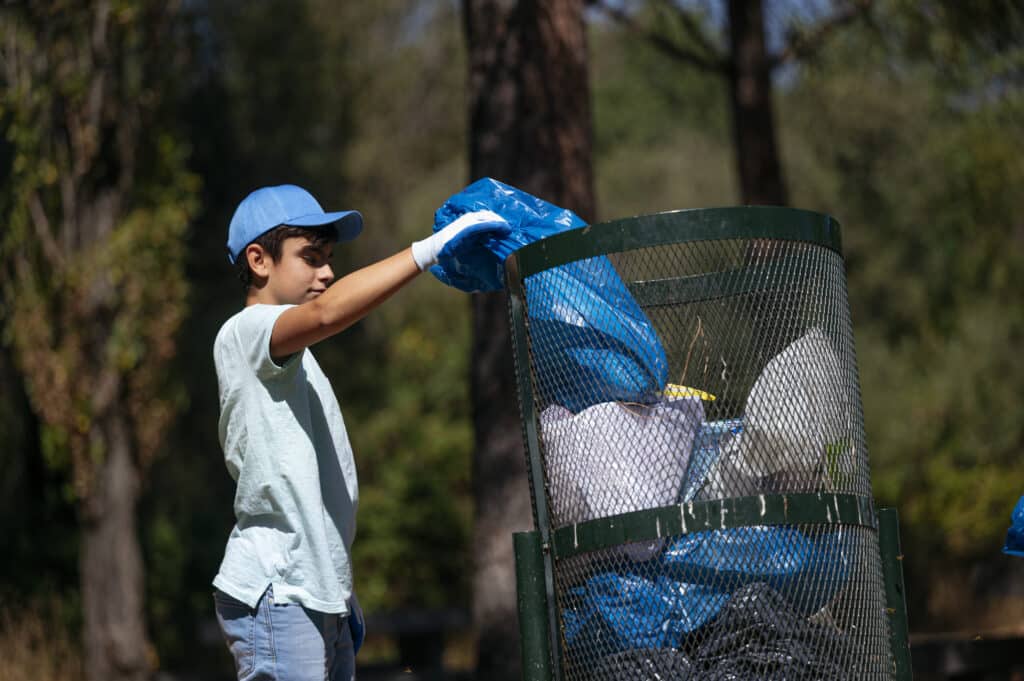
The whole idea of “anything worth doing is worth doing well,” is one thing, but we often hear that as “anything worth doing is worth doing perfectly.”
If you’re prone to perfectionistic behavior, consider beforehand what quality the activity or task deserves.
Don’t overdo it.
There is no prize for giving something more time or effort than it deserves.
Strategy #2: Use the 1-5 Strategy
Rate each thing you’re doing on a scale of 1 – 5, 5 being something that needs to be done perfectly (think brain surgery), and a 1 being something that can take what my Grandma calls “a lick and a promise.”
Most tasks will fall somewhere in between. Let them be there.
It is a waste to spend Level 5 energy and time on a Level 2 task. You don’t need to hit a bull’s eye every time.
Strategy #3: Don’t Be Your Own Worst Enemy
The world will do a fine job trying to beat you down – don’t join in the chorus.
When you feel discouraged, recognize it, name it, shrug your shoulders and try one more time.
Perseverance. Grit. Determination. You’ve got it somewhere. Don’t hide it under all the critical self-talk that says you can’t do it, so you might as well give up.
Strategy #4: Just Do It

This is a picture of me on a boat cruise in Germany. My husband and I were visiting, and I’d been practicing my German in preparation for the trip. My German was not perfect, to say the least.
On this boat, there was a couple who didn’t speak English. For three hours, my husband and I spoke with them in German.
Was my German good? No, not even a little bit.
But did we have a great time? Yes! Everytime we were able to undertand each other, I felt amazing!
What would my experience had been if I hadn’t been willing to speak unless I could speak perfectly?
Would I have had half as much fun? Nope.
My running shoes have laces that say “Shut up and run.”
Shut up and run.
Don’t worry about whether an assignment could be done better. Of course it could.
Don’t worry that it might not be the best thing ever turned in. Of course it’s not.
Just shut up and run. Step away from the White-out.
Turn in your work and move on.
Just do it.
Strategy #5: Be a Weeble and a Bozo
There used to be these toys called Weebles that had round bottoms.
The jingle on the advertisement for them said, “Weebles wobble, but they don’t fall down.”
Ask someone really old, like forty, to sing it for you.
There was also this toy that was a blow-up Bozo the Clown that was filled with sand on the bottom. Sorry, no song to go with it.
Both toys were essentially the same – you could knock them over, but they wouldn’t stay there.
You’re going to get knocked down.
Get up.
In fact, don’t even think of it as being knocked down; think of it as a wobble.
Channel your inner Weeble and bounce back up.
Strategy #6: Fail Forward
Guess what?
People mess stuff up all the time (think Large Hadron Collider – even you never messed up a particle physics multi-million dollar machine).
It’s okay, as long as you fail falling forward.
Take your mistakes and make them worth it.
Use them.
Make them make you better.
If you become paralyzed by your mistakes, you have surrendered to them.
They have won.
When I was in college, I had a professor who told the class, “I don’t give 100’s.”
You know exactly what that did to me. I was determined that I would FORCE him to give me a 100 because I would earn it.
I studied so hard (and I’m pretty good at that, actually).
I consistently got the best grade in the class, and it was consistently a 99.
And every time I would go to his office and demand an explanation.
By the end of the course, I was still getting 99’s, but boy were they better than the 99’s I’d received in September.
The key is that to me, a 99 was a failure.
Other people thought I was crazy (I know you know what I mean), but to me, anything less than 100 was not good enough.
But something changed for me in that class.
I learned to take that disappointment and harness it like oxen in a yoke.
Harness your mistakes, don’t bow before them.
Strategy #7: Set Out for Ithaka
When Odysseus sets out to go home to Ithaka after the Trojan War, he has no idea it will take so long.
Cyclops and witches and Sirens, not to mention the pesky Sun God’s cattle (will his men EVER learn???)…all conspire to keep him from where he’s going.
But guess what?
It was the journey that was important after all.
In my favorite poem of all time (and that’s sayin’ something), the lesson of Odysseus is shared with all of us. Constantin Cavafy, a Greek poet, writes:
Keep Ithaka always in your mind.
Arriving there is what you are destined for.
But do not hurry the journey at all.
Better if it lasts for years,
so you are old by the time you reach the island,
wealthy with all you have gained on the way,
not expecting Ithaka to make you rich.
Ithaka gave you the marvelous journey.
Without her you would not have set out.
She has nothing left to give you now.
(C.P. Cavafy, Collected Poems. Translated by Edmund Keeley and Philip Sherrard. Edited by George Savidis. Revised Edition. Princeton University Press, 1992)
So guess what? It’s the journey after all.
Don’t get hung up on the Sirens or taken in by the witches like Circe.
Don’t get anxious and hung up on trying to get to your destination and worried that you’re supposed to be there but instead you’re frustrated with this one homework problem or essay.
Here’s the key: it’s not finishing that’s important. It’s what you learn on the way.
If you try too hard to be perfect (I know, I know. You’re not trying. It’s just how you are. I get it.) you can’t let the light in because it comes through the cracks. So close the book, put the pencil down, turn out the light, and make peace with the idea that you have done all you needed to do. Excellent is good enough. Don’t be your own worst enemy. Just do it. Be a Weeble and a Bozo. Fail forward and set out for Ithaka. Hope the voyage is a long one.
Perfectionism: A Practical Guide to Managing “Never Good Enough”
I was speaking at a SENG conference in Colorado when Dr. James Webb came up to me after my session on perfectionism and said, “I think this could be a book. Do you think you could write a book about this?”
“Sure,” I said. “How hard could it be?”
Famous last words.
I published the book with his publishing company, and the book won the Legacy Award that year for the best book published for parents of the gifted.
If you are looking for practical ideas for managing perfectionism, I highly recommend it (even though I’m the author).
You know a book is good when a teacher reading it for a book study tweets about it! I love that line, “If I dog-ear one more page…”
As an author, there’s nothing better.
Pro tip: Chapter Seven is a crowd favorite.
Grab Your Copy:
If you’d like to get your own copy, you can find it at your local library or:
Podcast Episodes about Perfectionism
In my article on the Best Podcasts on Giftedness I list the podcasts on which I’ve been a guest. That includes a number of them on perfectionism.
Here are perfectionism-specific podcasts you can listen to if you’d like to hear me talk about about perfectionism:
- The Neurodiversity Podcast
- Parent Footprint
- Life More Extraordinary
- The Dyslexia Quest
- TILT Parenting
- Raising Lifelong Learners
Movies with Perfectionists in Them
In my course on the Social and Emotional Needs of the Gifted, I have a module on biblio- and cinematherapy.
Cinematherapy is a way that we can help people overcome challenges through engaging with film.
Here are some movies that feature characters who have perfectionistic tendencies. They might spark some great discussions about perfectionism.
- Jiro Dreams of Sushi (2011): This documentary follows Jiro Ono, an esteemed sushi chef who dedicates his life to perfecting his craft. It explores the balance between passion and obsession in the pursuit of culinary excellence.
- The Prestige (2006): This film depicts two rival magicians whose obsessive pursuit of perfection in their craft leads to devastating consequences. Their rivalry and sacrifices highlight the destructive nature of their quest for greatness.
- The Intern (2015): This comedy-drama features a senior intern at an online fashion retailer who helps the young CEO navigate her perfectionist tendencies while balancing work and personal life. (PG-13)
- Encanto (2021): This Disney film revolves around the Madrigal family, each member gifted with unique magical abilities. Isabela, one of the sisters, embodies perfectionism as she feels pressured to maintain her flawless image and meet family expectations. The story explores themes of self-acceptance and the burdens of perfectionism through the eyes of Mirabel, who struggles to find her place in a seemingly perfect family.
- Frozen (2013): Elsa, the Snow Queen, grapples with her powers and the need for control, reflecting perfectionistic tendencies. Her journey highlights the struggle between embracing one’s true self and meeting external expectations, ultimately leading to the realization that imperfection is part of being human.
- Ratatouille (2007): The character of Anton Ego, a food critic, exhibits perfectionism in his expectations for culinary excellence. While he is not a child character, his interactions with Remy, a rat aspiring to be a chef, showcase the theme of striving for perfection in art and creativity.
- Tangled (2010): Rapunzel’s desire for perfection in her life and her artistic pursuits leads her on an adventure where she learns about freedom and self-expression beyond societal expectations.
- Inside Out (2015): This Pixar film features Riley, a young girl navigating her emotions. While not explicitly about perfectionism, it addresses the pressure to always be happy and the importance of embracing all feelings, including imperfection.
- Kiki’s Delivery Service (1989): Kiki, a young witch, strives to prove herself in a new town by starting her own delivery service. Her determination and desire to be perfect in her craft help her build confidence and ultimately find her place in the community, teaching her that imperfection is part of growth.
- Zootopia (2016): Judy Hopps, a rabbit, dreams of becoming the first rabbit police officer in Zootopia. Her perfectionistic drive to succeed leads her to work hard and overcome obstacles, ultimately proving herself and helping to solve a major case, demonstrating that perseverance can yield positive results.
- Finding Dory (2016): Dory, who struggles with short-term memory loss, embodies a form of perfectionism as she seeks to reunite with her family. Her determination and positive attitude lead her on an adventurous journey that emphasizes the importance of friendship and resilience.
- The Incredibles (2004): Helen Parr (Elastigirl) exhibits perfectionistic traits as she tries to balance being a superhero and a mother. Her efforts to maintain order and protect her family ultimately lead to their success in overcoming challenges, showcasing how striving for excellence can have rewarding outcomes.
While some of these movies show the negative consequences of perfectionism, many also highlight how characters’ perfectionistic tendencies can lead to personal growth, success, and positive relationships.
They make for great conversation about striking a balance.
Note: I also have books for bibliotherapy on my recommend resources Amazon page.
My Favorite Quote about Perfectionism
My favorite quote about perfectionism is this one: A beautiful thing is never perfect.
I also love it in French.
Learning More
If you would like to continue the perfectionism conversation, here are ways to do that:
- Check out the book.
- Listen to a podcast.
- Learn more about the Social and Emotional Needs of the Gifted Course.
- Take a one-hour class on perfectionism.

